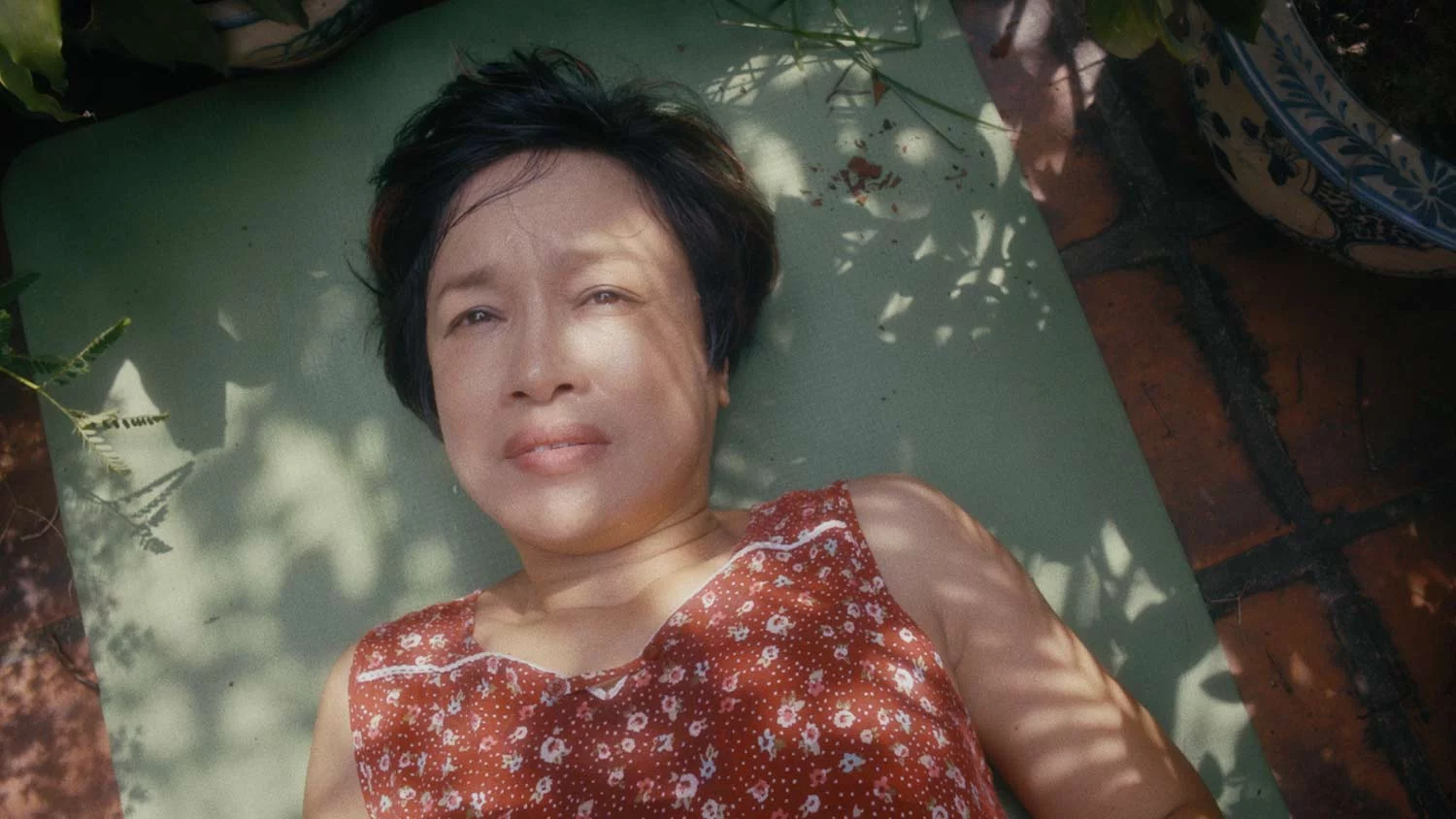The Mechanics of Taste: What Food Brings to the Table
By Yap Cai Ni

Sweet, Salty, dir. Linh Duong, 2019.
Though not a gourmet food documentary, Sweet, Salty is undeniably a feast for the eyes with its deliciously bright colours and crisp imagery. The title itself might be a bit of a misnomer, though — the film doesn’t technically talk about saltiness, and instead refers to a common old wives’ tale, where being pregnant with girls causes sweet cravings, while having boys results in a craving for sour snacks instead.
The film opens with a shot of our main character, practicing yoga on all fours, the full swell of her belly visible under her red floral ensemble. There’s a close-up of her plump fingers juicing a calamansi, with all the intensity and practiced aggression of a WWE fighter in the ring. She’s always wanted a boy for as long as she can remember. Now with one on the way, shouldn’t she be happy?
Unfortunately, reality for her is far more bittersweet.
Taste, in this manner, is utilised as a plot device which underpins the conflict and frustrations experienced by our main character, who plays the disdainful, naggy wife to a missing husband. Though bolstered by a supportive cast of women in her life, who offer to fight with her, for her, the happiness she obtains from being with them is ultimately only a fabrication of momentary joy that is easily disrupted by the presence of the other gender. Women are sweet, while men simply…are not. Depicted as absent, useless, or crybabies (sometimes in the literal sense of the word), the males in this film are, quite simply, human garbage.

To our main character’s disdain, her grandson sobs into his mother’s shoulders as she prepares to change his diapers.
Speaking of garbage, Diary of Cattle is a prime example of what happens when cows are allowed to roam about in an apocalyptic world full of trash. Far from a utopia, the cattle depicted are malnourished, skinny, diseased or dying.
Unlike Sweet, Salty, Diary of Cattle functions more like a documentary rather than a narrative. We are offered shot after shot of cows, garbage hills, more cows grazing on garbage hills, so on and so forth. As the cattle chomp on year-old bark and leather clippings, one can’t help but feel some semblance of sympathy for the plight of their poor taste-buds as well.

Diary of Cattle, dir. Lidia Afrilita, David Darmadi, 2019.
For these cows, hunger is all they have known their entire life. And it’s not a pretty party.
The film is disquieting, to say the least, as viewers are forced to confront footage of mountains of trash of their own doing alongside the cows that consume them. Soft chewing sounds and gentle trotting accompany the film, a steady staccato soundscape with an occasional moo or tractor truck humming thrown into the mix to break up the monotony.
While not food, the indifference with which the cows consume inorganic matter is distressing. A stark contrast to how neatly Sweet, Salty dresses up its fare, usually either plated up in pretty cookware or halo-ed by the dark moody interior of an ambulance, the cows of Diary of Cattle don’t have the luxury of mealtime aesthetics. Instead, they’re drowning in swathes of human waste labelled as food for the masses.

Cows on the junkyard, grazing on rubbish almost mournfully.
More than just a means of providing sustenance, the act of eating itself is also a metaphor of the inordinate mindlessness of human consumption in today’s society. It implies a cycle that doesn’t just begin in the stomach, but is instead indicative of a bigger problem at large. Sweet, Salty is a perfect example of this — food is used to frame the larger context of women’s perceived domestic subservience in a patriarchal world, as well as the main character’s dissatisfaction yet desire to conform to these unspoken rules of her society which underlie the circumstances of her son’s birth.
Though perhaps not for everyone, part of what makes Diary of Cattle so entertaining is how tedious and drawn-out the film almost feels at times. We believe we have seen everything we need to see within the first five minutes, but the film is far more rich than that. It doesn’t force a narrative down our throats, but instead offers a unique take on life through its display of the humdrum of everyday and the abject habituality of cow-hood, paralleling human routine.
As the day ends and the credits start to roll, one cannot help but breathe a sigh of relief so tangibly felt that it can almost be tasted. But it’s just day one and the week has barely started.
Films discussed: Sweet, Salty by Linh Duong (Vietnam) and Diary of Cattle by Lidia Afrilita, David Darmadi (Indonesia)
– Yap Cai Ni

